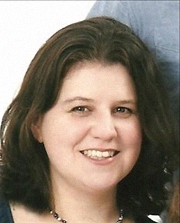Tutor HuntResources English Resources
Spelling
Spelling
Date : 07/01/2015
Author Information

Uploaded by : Ruth
Uploaded on : 07/01/2015
Subject : English
A few days ago, a friend of mine bemoaned the fact that she was struggling to help her son with his spellings when he asked perfectly reasonable questions like "why is the /c/ sound in that word made with a c but the /c/ sound in that one made with a k?". Ah, the beautiful English language.
We joked about the English language and its complicated history. Something which fascinates me as it is peppered with interesting anecdotes about spelling. The fact that when English was first written down, many of those writing were primarily literate in French or Latin meant that we adopted spelling rules from both languages. The fact that when printing was first introduced, the majority of printers were in fact Belgian meant that errors were so common they became accepted as the norm (interesting examples being "eny" changed to "any" and "bisy" to "busy"). And the fact that our current spelling is based on the Samuel Johnson dictionary of 1755. When he wrote it spelling was in flux, so he just picked the most common spelling and where there were many spellings ( e.g. there, their/where, wear) he often decided to link each spelling to a different meaning. (If this interests you as much as it does me, this is a brilliant little article).
Anyway, I digress. Back to my friend: I started by pointing her in the direction of a range of phonics resources. (Click here to see my synthetic phonics post), but then as we talked I realised that this doesn't solve the problem of an intelligent child wanting to learn why, nor of a parent needing to be able to explain rules which in most of our heads are, "just because". So I started out on a search.
My cousin is severely dyslexic and I remember as a child my aunt telling my mother that there was one thing which had revolutionised my cousin's spelling - spelling rules. I remember Mum dismissing it as ridiculous that you could find enough spelling rules to explain the English language; however I know through studying English that there are definitely more rules than anyone ever taught me and I wondered if I could find a useful tool to help my friend and her son.
A few clicks later and I came up with this page. It is aimed at Dyslexics and provides some great, clear explanations for spelling rules in the English language. The site itself is American, so some spellings may have to be treated with caution, but the rules all stand. There are obviously some exceptions - if there weren't this wouldn't be the English language - but if you are armed with this many rules there will be fewer words that you struggle to spell.
Using spelling rules helps children who want to know 'why?' to have a firmer understanding of what is happening. This often gives them something more to link the pattern to. At the end of the day, they will still have to learn the common spelling patterns, just as you would if you learnt to spell without the rules, but with an explanation of why, children can often be more willing to learn something.
Incidentally, if you are interested in your own spelling ability, the same friend pointed me in the direction of the following, highly addictive and potentially disheartening spelling challenge by the Oxford English Dictionary. Go on, try the 'Fiendish' level!
This resource was uploaded by: Ruth
